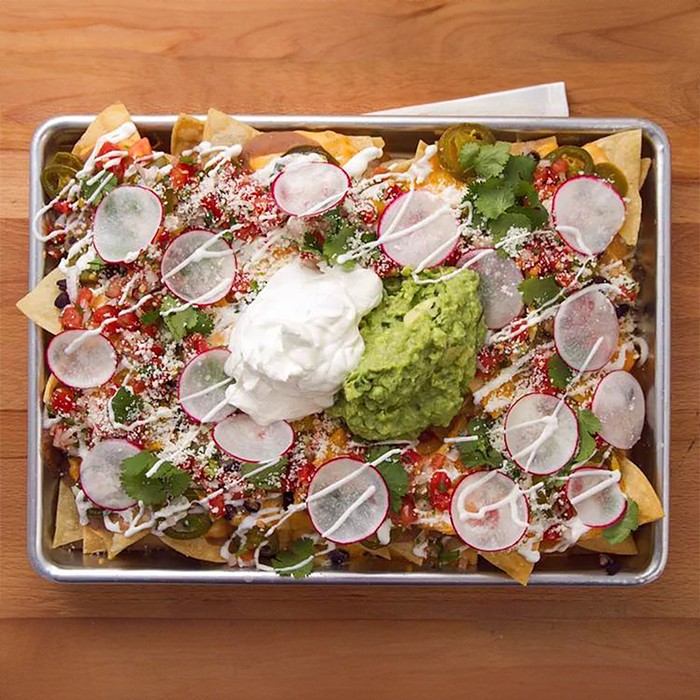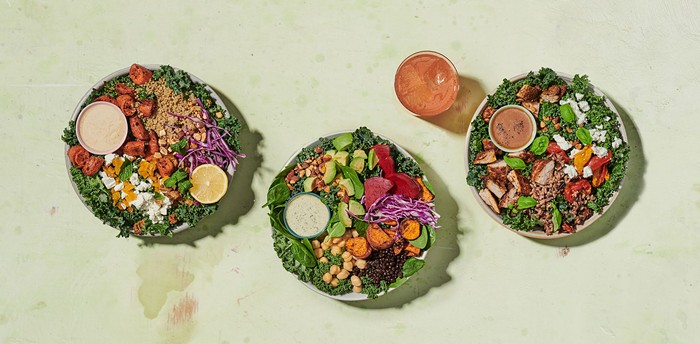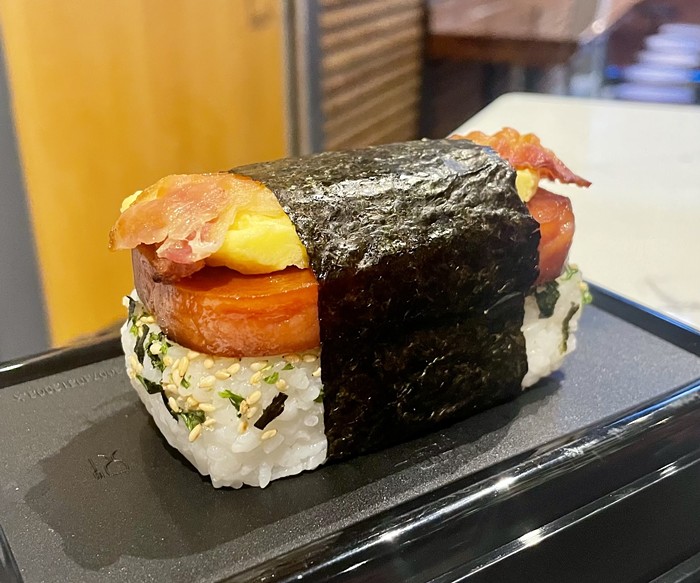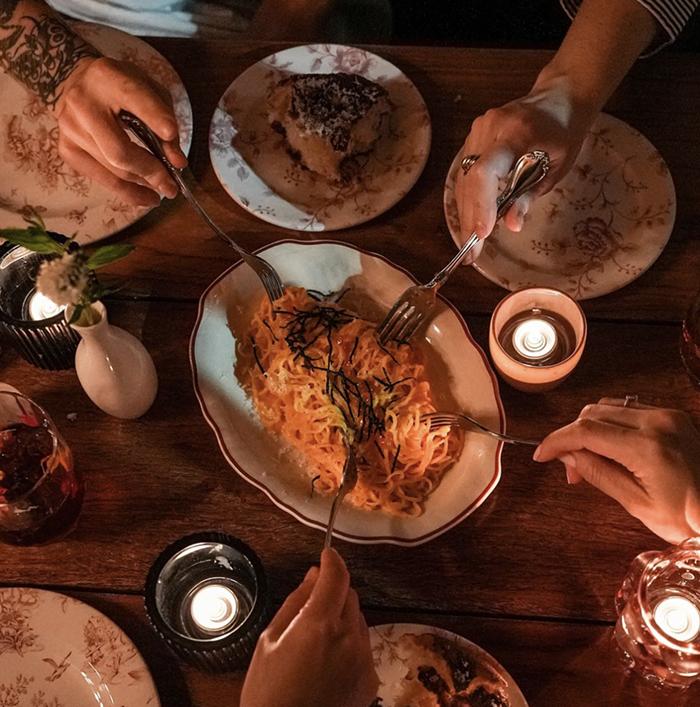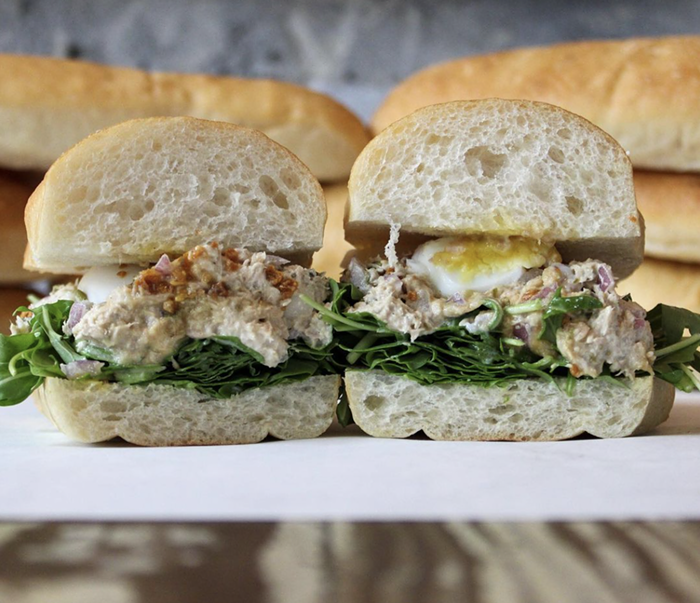Mollusk is the gorgeous, expansive South Lake Union reboot of Gastropod, a tiny Sodo brewery and restaurant with a devoted cult following. At Gastropod, chef Travis Kukull and brewmaster Cody Morris converted their faithful with boldly experimental beers and creative, unexpected food, which Kukull served up using a few burners and a convection oven. Naturally, the two were pretty optimistic for Mollusk, where they'd be armed with the state-of-the-art equipment and the space they'd need to really release their magic into the world.
But just seven months after Mollusk's triumphant arrival on the SLU restaurant scene, Kukull announced that, to save the business, he was stepping down. He told The Stranger's Angela Garbes that, due to a tepid response from the area's tech types, the restaurant was "dumping money out the window." He added that while tech workers were coming in for after-work drinks and office parties, they really just wanted pub grub with their fancy beers.
To meet this demand, Mollusk shifted its menu, bringing in Seamus Platt, previously of Korean steak house Girin, to cook food that was, in Morris's words, balanced "between accessible and interesting." While Kukull's food—which I never got to try—seems to have been a life-changing experience, there's certainly nothing wrong with a little poutine, provided it's done well.
On my first visit, I snagged a seat at the bar next to a dude letting his bavette steak get cold while he hammered out some code. My companion and I ordered up a mess of different things from the admirably broad menu, and it all looked really intriguing on paper. Twice-fried wings with black garlic miso glaze? Clams in a sour beer broth? Yes, please.
In practice, though, most of the outré elements that drew me to those dishes didn't come off, which meant that the whole adventurous takes on traditional favorites thing just ended up being decent but slightly overpriced gastropub fare.
The black garlic miso glaze on the wings, for example, lacked the funky punch you want from something with that much fermented material in it. And the skin beneath the glaze wasn't quite crispy enough to balance out its gloopy texture. Argh, that glaze! Like George Clinton, I just wanted the funk. Without it, the wings were fine, but not exactly the mothership connection I was set up for.
The clams were similarly disappointing, despite being steamed in Mollusk's Partytime!!! sour ale and accompanied by a liberal amount of perfect lardons. I love sour beer with a fiery passion, and the idea of cutting the fatty lardons with some beery acidity was very appealing to me. But the sourness of the ale was lost during steaming, leaving the plump clams to float around in a pretty straightforward beer broth.
I found another tease on the cocktail menu: an old-fashioned created with a simple syrup made from Despair, Mollusk's botanical black farmhouse ale. On its own, the beer was lovely, boasting a rugged, challenging body and intense mid-palate flavor hit. Were I able to taste any of it in the syrup, the old-fashioned, a good one as these things go, would have been elevated to amazing heights.
Beers, too, were somewhat hit-and-miss. That Despair left me in high spirits, but its wheat version, Hope, didn't. A tart miso sour was a funky, savory revelation in a glass, but their house IPA wasn't anything to write home about, though, according to Kukull, that and the simple lager are best sellers.
All that said, some of the menu's innovations were absolutely amazing. Crushed potatoes resting atop roasted anchovy mayo and fennel kimchi was one of the best dishes I've had in the past year. The potatoes were perfectly roasted and seasoned. The mayo was sufficiently smoky and fishy, and instead of being overpowered by the airy, intensely piquant fennel kimchi, it was the perfect match for it. Platt is noted for his love of fermented things, and that shines through in a major way here.
The peanut-butter ice cream that finished the meal was also revelatory. Far less sweet than I'd expected, it came close to the texture of actual peanut butter scooped from the jar while still being melty, rich ice cream—exactly the type of novel experience I'd come for.
To really test out Mollusk's aims for updated pub fare, I opted for some classics on my second visit: the burger and the fish and chips.
The burger was a typically rich pub version, with its brioche bun, sautéed mushrooms, quality white cheddar, and an enormous, bacon-topped pork belly and chuck patty. I was thrilled to see butter lettuce on top and similarly happy with the bread and butter pickles and thinly sliced pickled Fresno peppers that served as acidic ballast. However, as usual, I was left wanting more "interesting" and less "accessible." What it really could have used was some of the regular cabbage kimchi that came alongside the fish and chips. That was absolutely perfect.
Speaking of which, as someone who has scoured the city for the best fish and chips, I am sad to say these are not them. Especially sad because I'd hoped a $16 platter of lingcod coated in Partytime!!! batter would be a little better. Once again, the ale lent nothing to the passable but ultimately plain breading, and the fish itself was a hair past that tender, internally unctuous point where good fish and chips should rest. But the robust house-made malt vinegar served alongside was an epiphany for someone who had only ever had the regular Heinz stuff.
Even after two rounds, however, something about Mollusk still nagged at me. How could a place that had garnered so many adoring reviews from so many food writers I admire be this bewildering? So I went back for a third visit, opting, appropriately enough, to finish up some work on my laptop over a pint of their dry-hopped lager and some choucroute stew.
It ended up confirming all of my prior suspicions. Choucroute is a traditional Alsatian dish usually consisting of sauerkraut, sausages, and potatoes. It is normally not a stew but rather a plate. A stew version didn't sound half bad, though. And it wasn't. The flavor was great, but the whole thing was swimming in an excessive amount of thick, oily liquid. While the flavor of that meaty lake was good—fatty, salty, and zingy all at once—it turned almost everything it touched into textureless mush, including what should have been a plump, pliant house-made sausage. Like nearly everything else I'd tried from Mollusk's menu, the choucroute stew set me up to knock me down.
This is all very frustrating, because Mollusk could be the accessible yet interesting gastropub it's aiming to be. Platt is clearly a talented chef, as evidenced by those superlative kimchi-laden potatoes. However, he's cooking food that does not seem to scratch the surface of what he can do.
I'm hesitant to blame the switch to pub food, however, as plenty of people do it to perfection. See Maria Hines's brand-new Young American Ale House for proof. No, the problem here is that the food feels stuck somewhere in the middle, not attempting to match the boldness of Gastropod, but not really nailing the basics that they're depending on to build the type of mass-market following that could fill their cavernous space. Mollusk is a fabulous concept—I'm always in support of highbrow beer food—it's just not quite there yet. Here's hoping it finds its footing. ![]()

